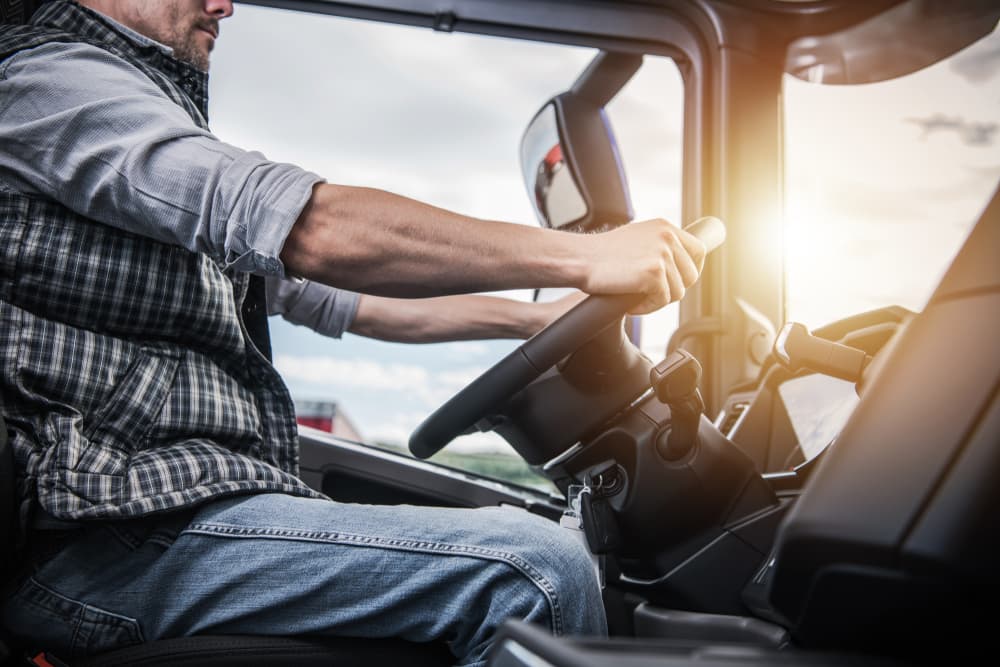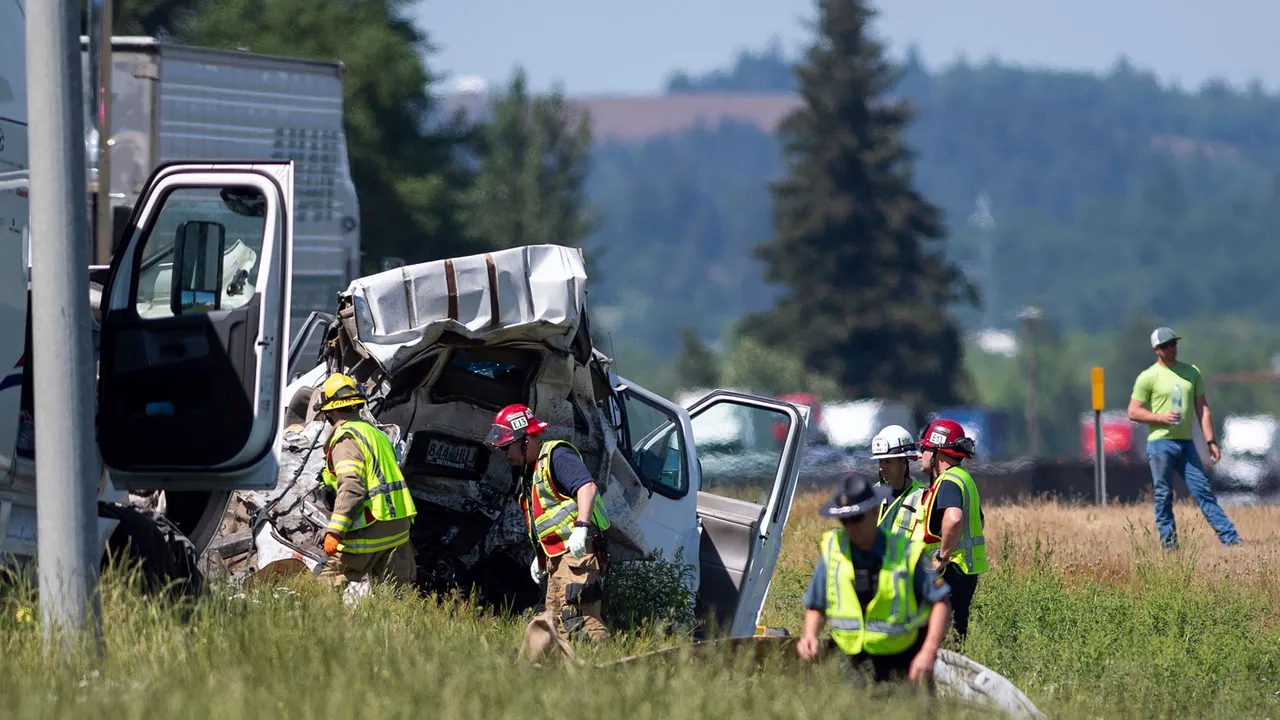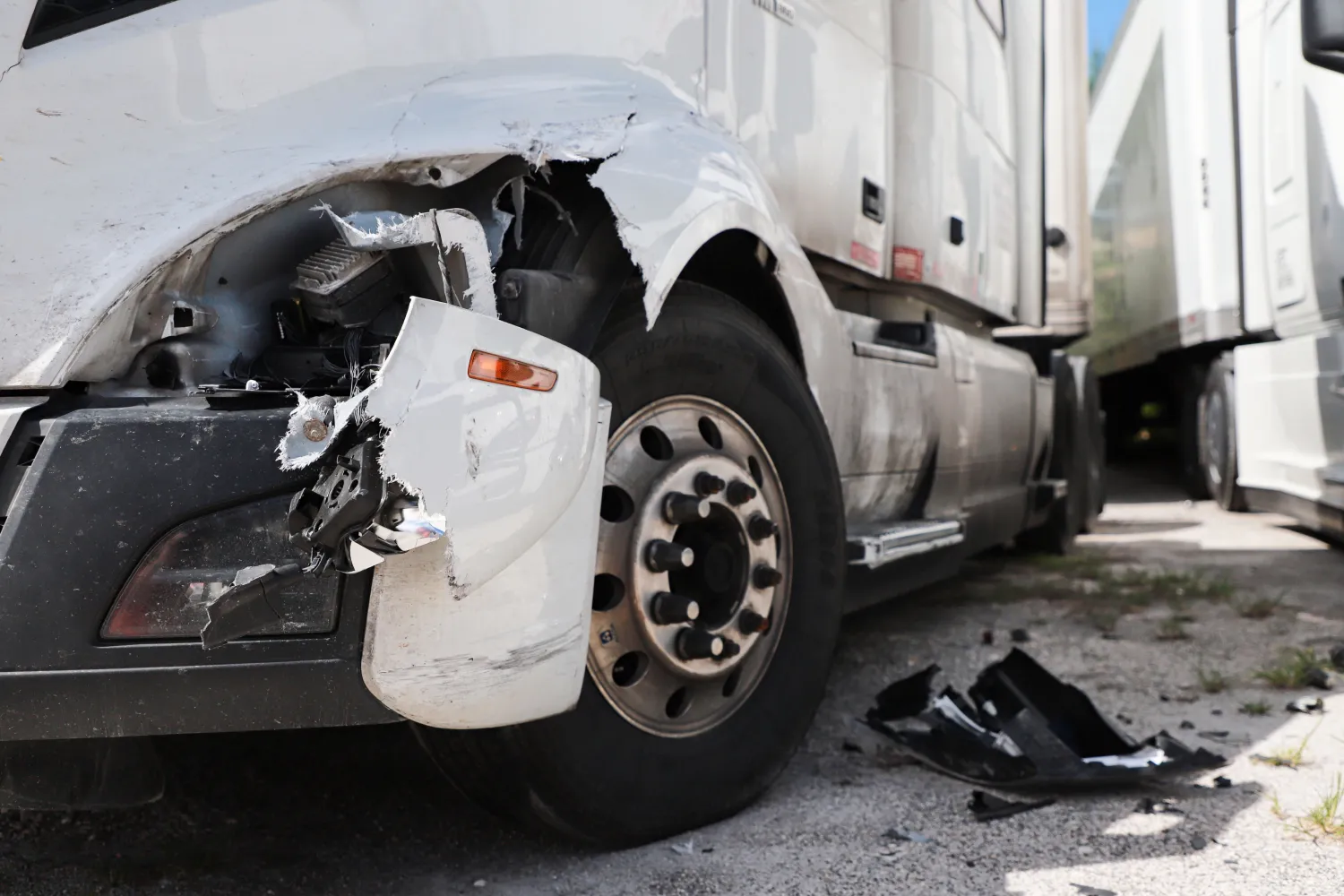Common Types of Truck Accidents in Georgia
Truck accidents are among the most devastating types of motor vehicle accidents, often leading to catastrophic injuries or even fatalities. Due to the sheer size and weight of commercial trucks, they can cause significantly more damage than typical car crashes.
Understanding the types of truck accidents can help determine fault and how liability affects the recovery process.
The experienced Atlanta truck accident lawyers at Shani O. Brooks P.C. are dedicated to providing personalized, compassionate representation for truck accident victims in Atlanta and across Georgia. Our legal team will work tirelessly to investigate the circumstances of your accident, hold the responsible parties accountable, and ensure that you receive the maximum compensation possible.
Here’s a look at the most common types of truck accidents, their causes, and the potential legal implications for each:
Jackknife Accidents
Jackknife accidents occur when the trailer of a large truck swings out at a 90-degree angle from the cab, resembling a folding pocket knife. This particularly dangerous accident can affect multiple lanes of traffic and is often difficult for other drivers to avoid.
Causes of Jackknife Accidents:
- Improper braking techniques
- Slippery road conditions
- Equipment failure, particularly in the truck’s braking system
- Sudden swerving to avoid obstacles
Prevention and Liability:
Trucking companies and drivers are responsible for ensuring proper maintenance of braking systems and training drivers in appropriate braking techniques for various road conditions. In many cases, truck driver error or negligence in vehicle maintenance cause jackknife accidents.
Rollover Accidents
Rollover accidents occur when a truck tips onto its side or roof.
These accidents are particularly common with tanker trucks or other top-heavy vehicles.
Causes of Rollover Accidents:
- Taking curves or turns too quickly
- Sudden steering maneuvers
- Improperly loaded or secured cargo
- High winds, especially for empty trailers
Prevention and Liability:
Proper loading procedures, adherence to speed limits, and careful driving in adverse weather conditions can help prevent rollover accidents. Liability may fall on the driver, the trucking company, or even the cargo loading team, depending on the specific circumstances of the accident.
Underride Accidents
Underride accidents are among the most horrific types of truck accidents. They occur when a smaller vehicle collides with the rear or side of a truck and slides underneath the trailer.
Types of Underride Accidents:
- Rear underride: When a vehicle crashes into the back of a truck
- Side underride: When a vehicle slides under the side of a truck’s trailer
Prevention and Safety Measures:
Installing underride guards on trucks can significantly reduce the severity of these accidents. However, not all trucks are equipped with adequate guards, and some guards fail to perform as intended in real-world crash scenarios.
Legal Considerations:
In underride accident cases, it’s crucial to investigate whether the truck was properly equipped with underride guards and if those guards met federal safety standards. Liability may extend beyond the driver to include the trucking company or even the manufacturer of faulty underride guards.
Tire Blowout Accidents
Tire blowouts can cause truck drivers to lose control of their vehicles, potentially leading to multi-vehicle pileups or rollovers.
Causes of Tire Blowouts:
- Overloaded trucks
- Inadequate tire maintenance
- Road hazards
- Manufacturing defects in the tires
Prevention and Liability:
Regular tire inspections and maintenance can prevent blowouts. If a defect causes an accident, liability may involve the truck driver, the trucking company responsible for maintenance, or even the tire manufacturer.
Wide Turn Accidents
Also known as squeeze play accidents, these occur when a truck swings wide to the left before making a right turn, trapping or colliding with vehicles on its right side.
Causes of Wide Turn Accidents:
- Lack of proper signaling
- Misjudging the space needed for the turn
- Blind spots obscuring nearby vehicles
Prevention and Safety Tips:
Drivers should pay attention to a truck’s turn signals and avoid positioning themselves in a truck’s blind spots, especially near intersections. Truck drivers must clear blind spots and use proper signaling well before turns.
Rear-End Collisions
While rear-end collisions are common among all vehicles, large trucks may make them particularly dangerous due to the substantial difference in vehicle size and weight.
Causes of Truck Rear-End Collisions:
- Distracted driving
- Following too closely
- Brake failures
- Fatigue-induced delayed reaction times
Prevention and Liability:
Maintaining safe following distances and staying alert improve safety for both truck drivers and other motorists. In brake failure cases, you can hold the trucking company liable for inadequate maintenance.
Head-On Collisions
Although less common, head-on collisions involving trucks are often fatal due to the force of impact.
Causes of Head-On Truck Collisions:
- Driver fatigue leading to lane departure
- Intoxicated driving
- Improper passing maneuvers
- Distracted driving
Legal Implications:
Head-on collisions often involve clear violations of traffic laws, but the severity of injuries often necessitates skilled legal representation to ensure fair compensation.
T-Bone Accidents
T-bone accidents, also known as side-impact collisions, occur when the front of a truck collides with the side of another vehicle, forming a “T” shape. These accidents are particularly dangerous due to the significant size difference between trucks and passenger vehicles.
Causes of T-Bone Truck Accidents:
- Running red lights or stop signs
- Failure to yield the right of way
- Poor visibility at intersections
- Misjudging the speed of oncoming traffic
Legal and Safety Considerations:
T-bone accidents involving trucks often result in severe injuries or fatalities, especially for occupants of the smaller vehicle. The side of a passenger vehicle offers less protection than the front or rear, making these accidents particularly devastating.
From a legal standpoint, determining liability often involves analyzing traffic signals, eyewitness accounts, and potentially video footage from nearby surveillance cameras or dashcams.
Lost Load Accidents
These accidents occur when cargo is improperly secured and falls from the truck onto the roadway, creating hazards for other drivers.
Common Scenarios:
- Debris falling onto following vehicles
- Cargo spills creating road obstacles
- Shifting loads causing truck instability
Liability Considerations:
Multiple parties, including the truck driver, the company responsible for loading the cargo, and the trucking company itself, may face liability in lost load accidents.
Bridge Strike Accidents
Bridge strike accidents happen when a truck that is too tall attempts to pass under a bridge or overpass that’s too low.
Consequences of Bridge Strikes:
- Structural damage to bridges
- Traffic disruptions
- Potential for multi-vehicle pileups
Prevention and Responsibility:
Truck drivers and companies are responsible for knowing their vehicle’s height and planning routes accordingly. Liability may extend to companies that provide route planning services if they fail to account for height restrictions.
Hazardous Material Spills
While not technically a type of collision, hazardous material spills from trucks can lead to serious accidents and pose significant public safety risks.
Potential Hazards:
- Chemical burns
- Toxic fume inhalation
- Environmental contamination
- Secondary accidents due to slippery road conditions
Legal and Safety Considerations:
Trucks carrying hazardous materials are subject to strict regulations. Violations of these regulations can lead to severe legal consequences for trucking companies and drivers.
Truck Accident Statistics: Alarming Trends
Truck accidents continue to be a significant safety concern on U.S. roads. According to the most recent data from the National Safety Council’s Injury Facts report, 5,837 large trucks were in fatal crashes last year—a 1.8% increase from the previous year and a staggering 49% increase over the last decade.
The rate of large trucks involved in fatal crashes per 100 million miles traveled has risen by 24% over the same period.
Large trucks, defined as vehicles with a gross weight exceeding 10,000 pounds, accounted for 6% of all vehicles in fatal crashes and 10% of total vehicle miles traveled. Beyond fatal accidents, 120,200 large trucks were in injury crashes last year, marking a 2.5% increase over the previous year. Over the past eight years, truck-involved injury crashes have risen by 18%, making these accidents a growing public safety issue.
What Makes Trucks So Dangerous?
Truck accidents are among the most devastating vehicular incidents on our roads. Due to the sheer size and weight of commercial trucks, collisions involving these vehicles often result in severe injuries, significant property damage, and, in tragic cases, fatalities.
Here’s why trucks pose such a significant danger:
- Size and Weight Disparity: Commercial trucks can weigh up to 80,000 pounds when fully loaded, while the average passenger vehicle weighs around 4,000 pounds. This enormous difference in size and weight puts smaller vehicles and their occupants at a severe disadvantage in a collision.
- Longer Stopping Distances: Due to their mass, trucks require much more distance to come to a complete stop compared to smaller vehicles. This increased stopping distance can be particularly dangerous in emergency situations or when traffic suddenly slows.
- Large Blind Spots: Trucks have significant blind spots on all four sides, often called No Zones. These areas make it difficult for truck drivers to see smaller vehicles, increasing the risk of collisions during lane changes or turns.
- Higher Center of Gravity: Trucks’ tall profiles, especially when carrying cargo, result in a higher center of gravity. This makes trucks more susceptible to rollover accidents, particularly in high winds or during sharp turns.
- Driver Fatigue: Long-haul truckers often face demanding schedules and may drive for extended periods, increasing the risk of fatigue-related accidents. Despite regulations limiting driving hours, driver fatigue remains a significant concern.
- Maintenance Challenges: Large trucks’ complex mechanical systems require regular, thorough maintenance. Any oversight in maintenance can lead to equipment failures with potentially catastrophic consequences.
- Hazardous Cargo: Many trucks transport hazardous materials, which can pose additional risks in the event of an accident. Spills of dangerous substances can lead to fire, explosions, or exposure to toxic materials.
- Increased Severity of Accidents: The forces involved often make truck accidents more severe. A minor fender-bender between two cars can become a life-threatening incident when a truck is involved.
The Importance of Legal Representation in Truck Accident Cases
Truck accidents are often more complex than typical car accidents due to:
- Multiple Liable Parties: Depending on the type of accident, liable parties may include the truck driver, trucking company, vehicle or parts manufacturers, cargo loaders, or even government entities responsible for road maintenance.
- Complex Regulations: The trucking industry is heavily regulated at both federal and state levels. A lawyer who understands these regulations can build a strong case.
- Severity of Damages: Due to the often catastrophic nature of truck accidents, the stakes increase in terms of medical costs, long-term care needs, and overall compensation.
- Powerful Opposition: Trucking companies and their insurers often have substantial resources at their disposal to fight claims. Having a skilled attorney levels the playing field.
At Shani O. Brooks P.C., we have extensive experience handling all types of truck accident cases. Our team understands the intricacies of trucking regulations, the tactics used by insurance companies to minimize payouts, and the best strategies to secure maximum compensation for our clients.
Contact the Experienced Atlanta Truck Accident Lawyers at Shani O. Brooks, P.C., Today
Truck accidents can be devastating, leading to life-altering injuries or fatalities. Understanding the different types of truck accidents is crucial for determining liability and pursuing a claim.
Don’t let the complexities of truck accident lawsuits overwhelm you. Contact our Atlanta personal injury lawyers at Shani O. Brooks P.C. today at (404) 920-4736 or through our online form for a free and confidential consultation.




